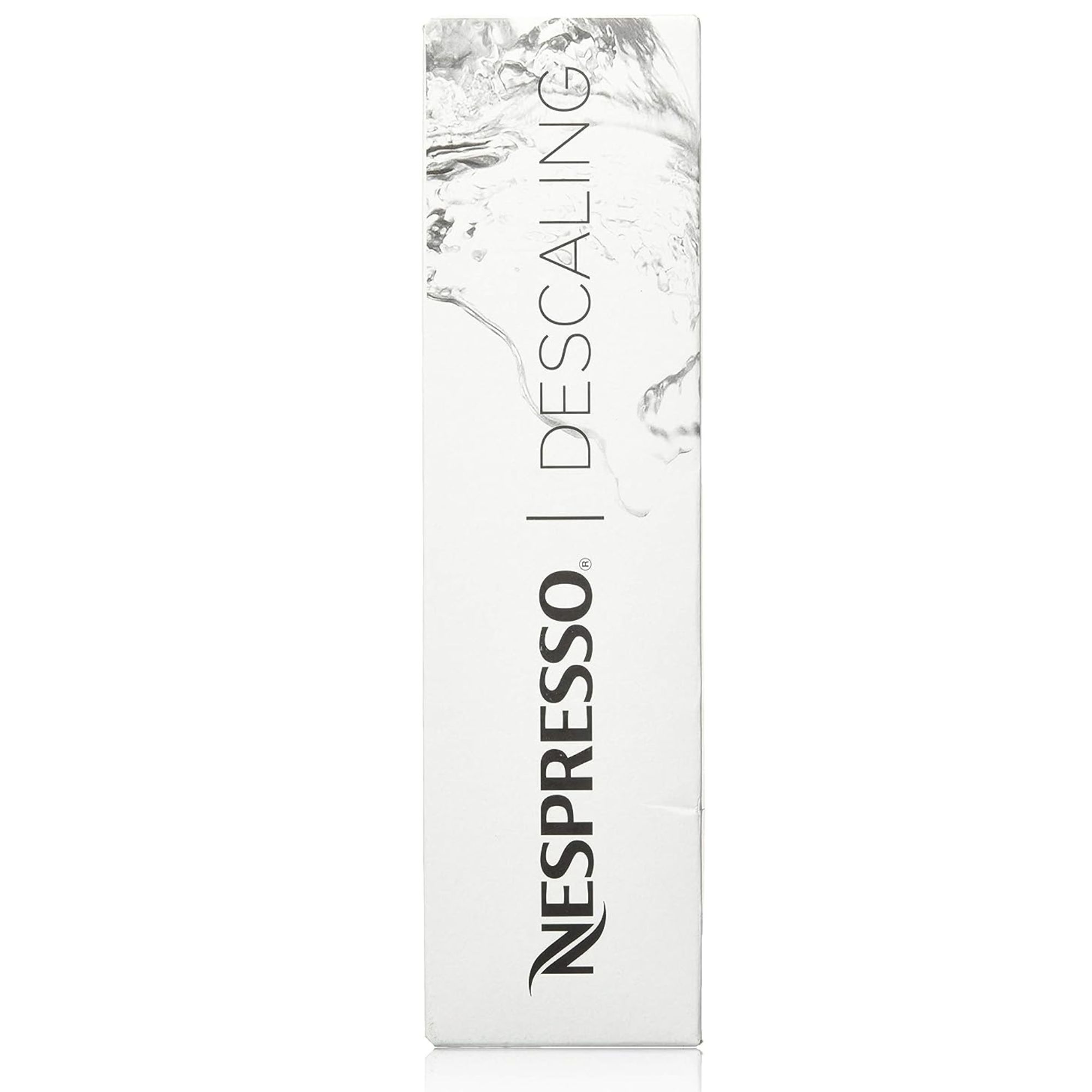This simple cleaning schedule will extend the life of your Nespresso machine
Here's everything you need to do daily, weekly, and monthly to extend the life of your coffee maker
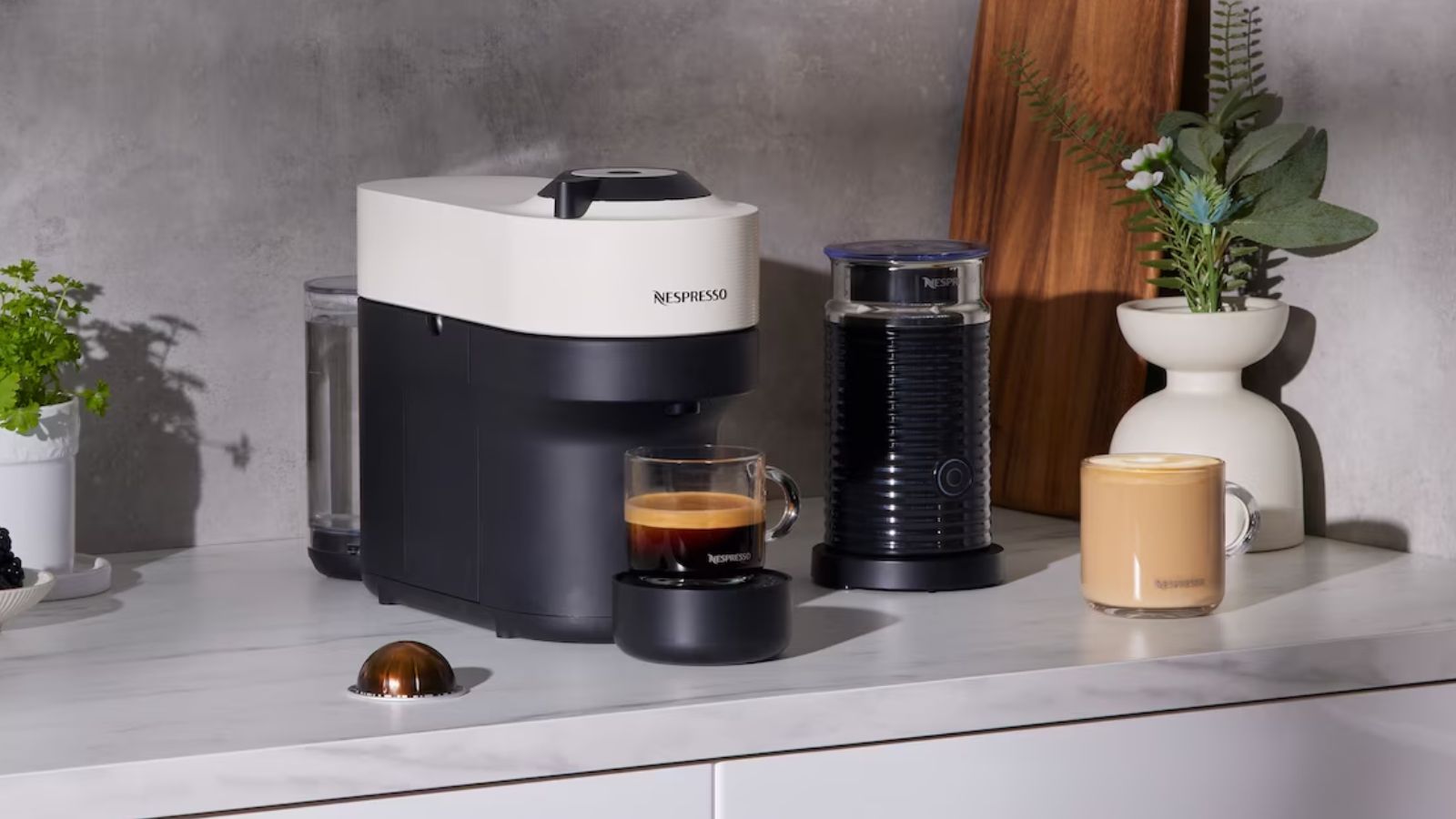

Even if you know exactly how to clean a Nespresso machine, it's highly likely that you've been neglecting your regular maintenance routine. If you're not emptying the pod bin after every use, running a rinse cycle, and descaling every three months, chances are, your machine is suffering.
We're all guilty of rushing away from our Nespressos, coffee in one hand, a never-ending to-do list in the other. However, even if you've invested in one of the best Nespresso machines, you won't be able to enjoy the luxury of quick delicious coffee for long if you're not cleaning it properly.
I spoke with Nespresso experts and cleaning specialists to find out exactly how to clean a Nespresso machine. They gave product recommendations, home remedies, and timeframes too, so that you can set a simple schedule that is also easy to stick to.
I've covered short and long-term solutions here. However, if you're at the crisis stage of scale build-up, we've covered how to descale a Nespresso Vertuo machine in extensive detail too.
Your regular cleaning routine (do daily or weekly)
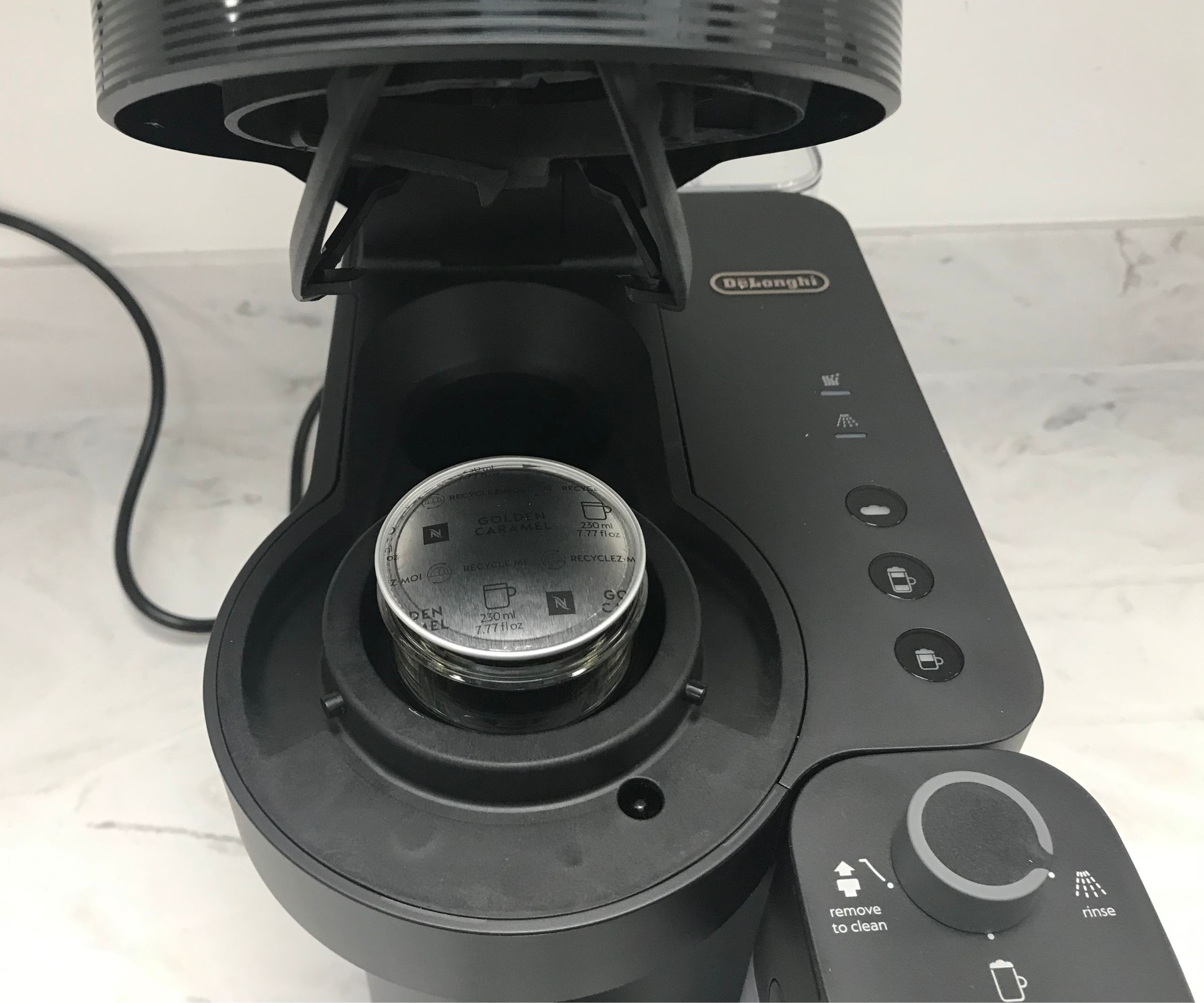
Whilst daily cleaning might sound like a lot of effort, it takes a matter of seconds and will save you in the longer term. Experts recommended three, small, daily tasks to follow after you've brewed your cup of coffee.
The first task to follow is simple: wipe away any splashes. All you need is a damp cloth and you can give your machine a quick once over. If you want a deeper clean, Karina Toner, from Spekless Cleaning recommends using 'a mixture of water and baking soda to clean the coffee maker's exterior.' It's an easy home remedy, but do a patch test. You don't want to strip any of your Nespresso's exterior gloss.
If you have more time, Jee Chloe, SCA-certified coffee expert, recommends 'devoting some extra attention to the spout, drip tray, and capsule container.' Chloe emphasized 'removing your used capsules from the capsule bin immediately after brewing, because your pods are warm and moist, a breeding ground for mold'.
Both of those jobs are quick and can be completed daily. The last, regular cleaning you should build into your routine is a weekly job. Take all the removable parts (the drip tray, water reservoir, and coffee stand) and wash them with warm soapy water. If you can see stubborn stains and marks, use a descaling solution. This doesn't need to be elaborate. Nespresso expert, Galen Zamarra, says something simple, such as Lime Away (available at Walmart) works just as well as any professional solution.
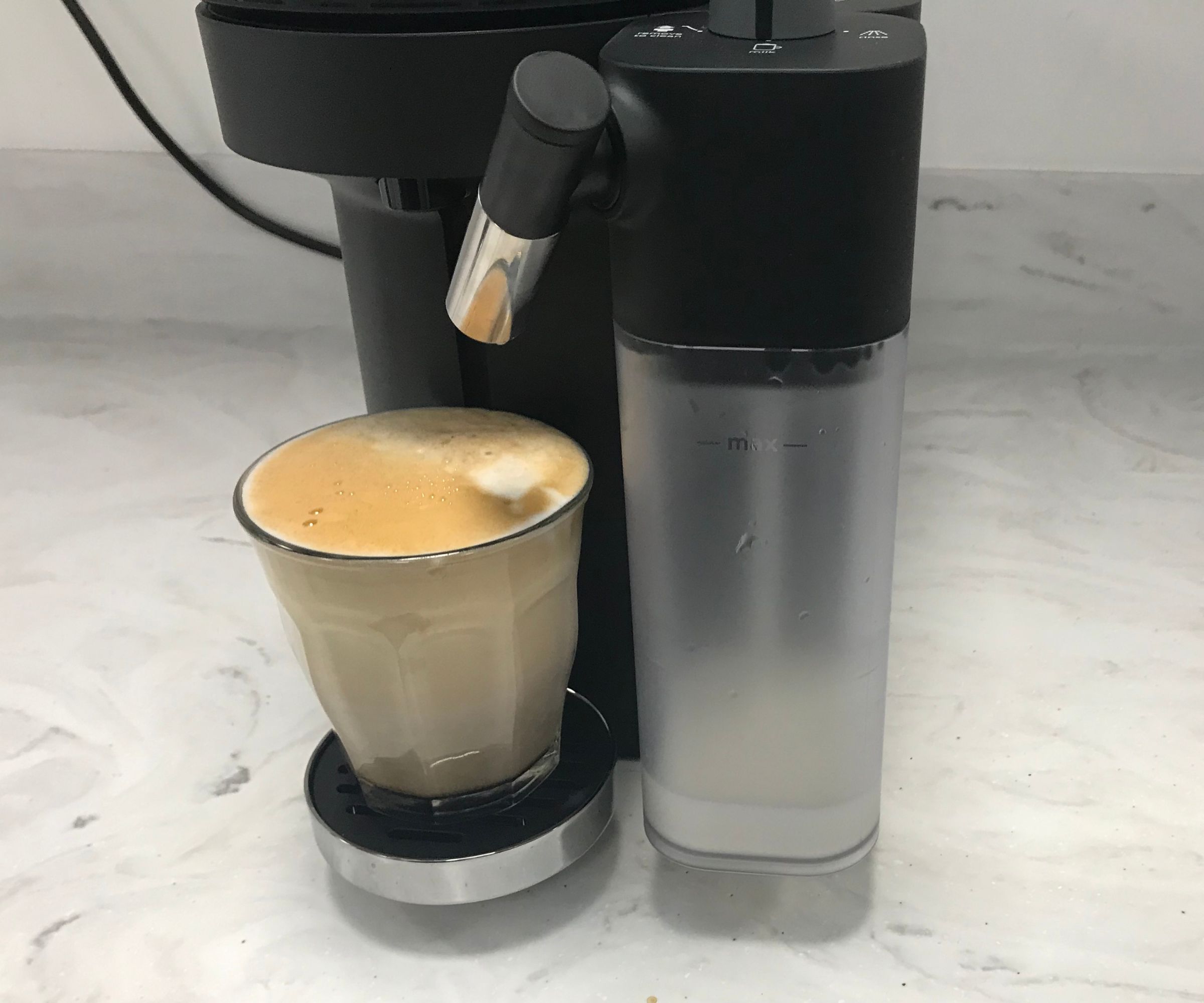
Not every Nespresso has a milk frother. However, if yours does, this is a feature that needs some serious care and attention. I wouldn't even take a sip of my drink without cleaning mine. Once the milk has dried it's hard to get off. So, once it has textured your milk, run the wand or nozzle through with warm water and wipe it dry. If, God forbid, you've found the milk has dried into place, Jee Chloe, SCA-certified coffee expert, recommends using a paperclip to unclog your steam wand and then using hot water and a cloth to wipe the dried milk away. You might need some elbow grease though.
Cleaning essentials
You don't need to do a big, expensive shop to keep your Nespresso sparkling. These small essentials are all you need in your cleaning kit.
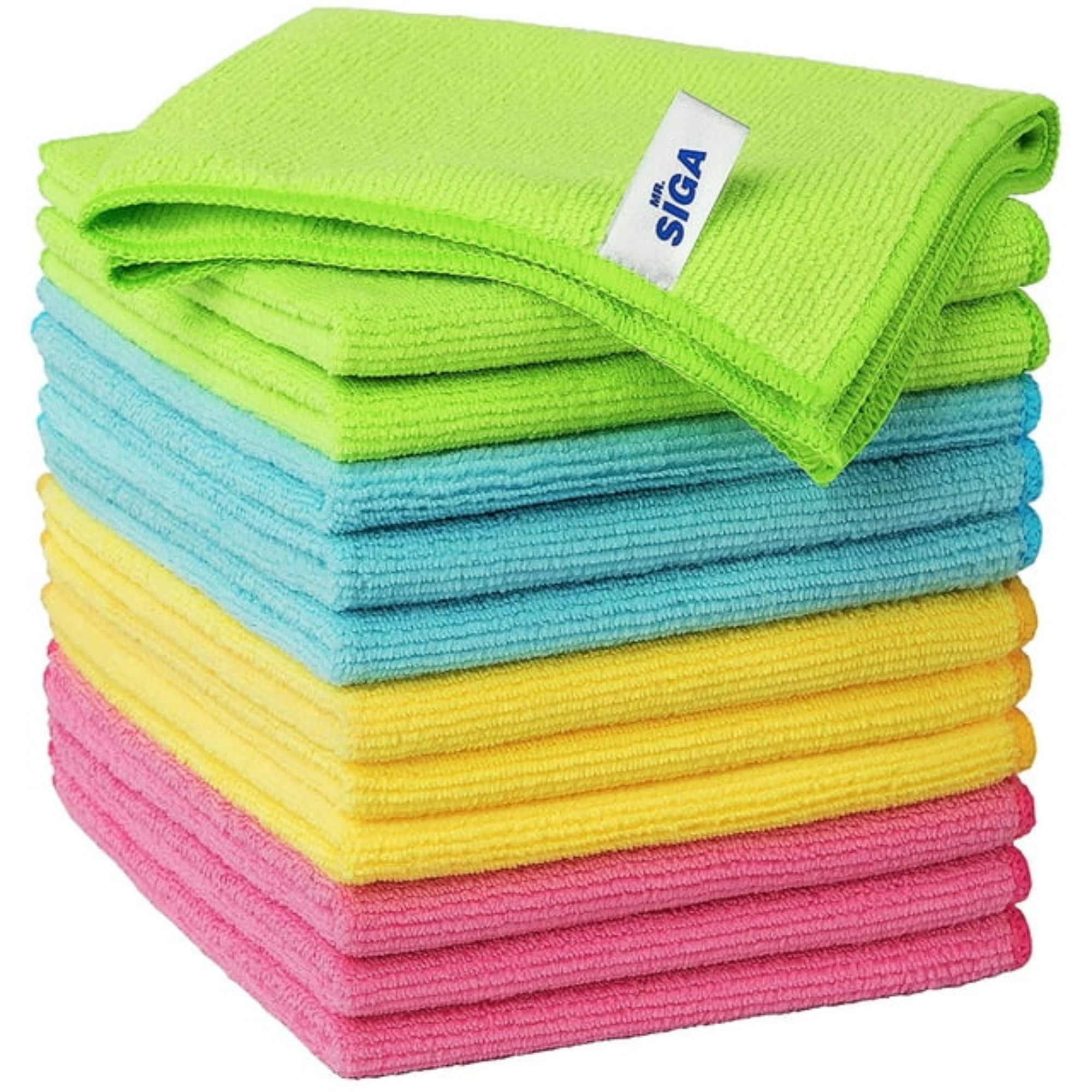
Jee Chloe recommends 'looking for smooth lint-free microfiber cloths which will remove residues without scratching surfaces.' She recommends using these with warm water: keep one separate for the inside and one for the outside and one for the drip tray area.
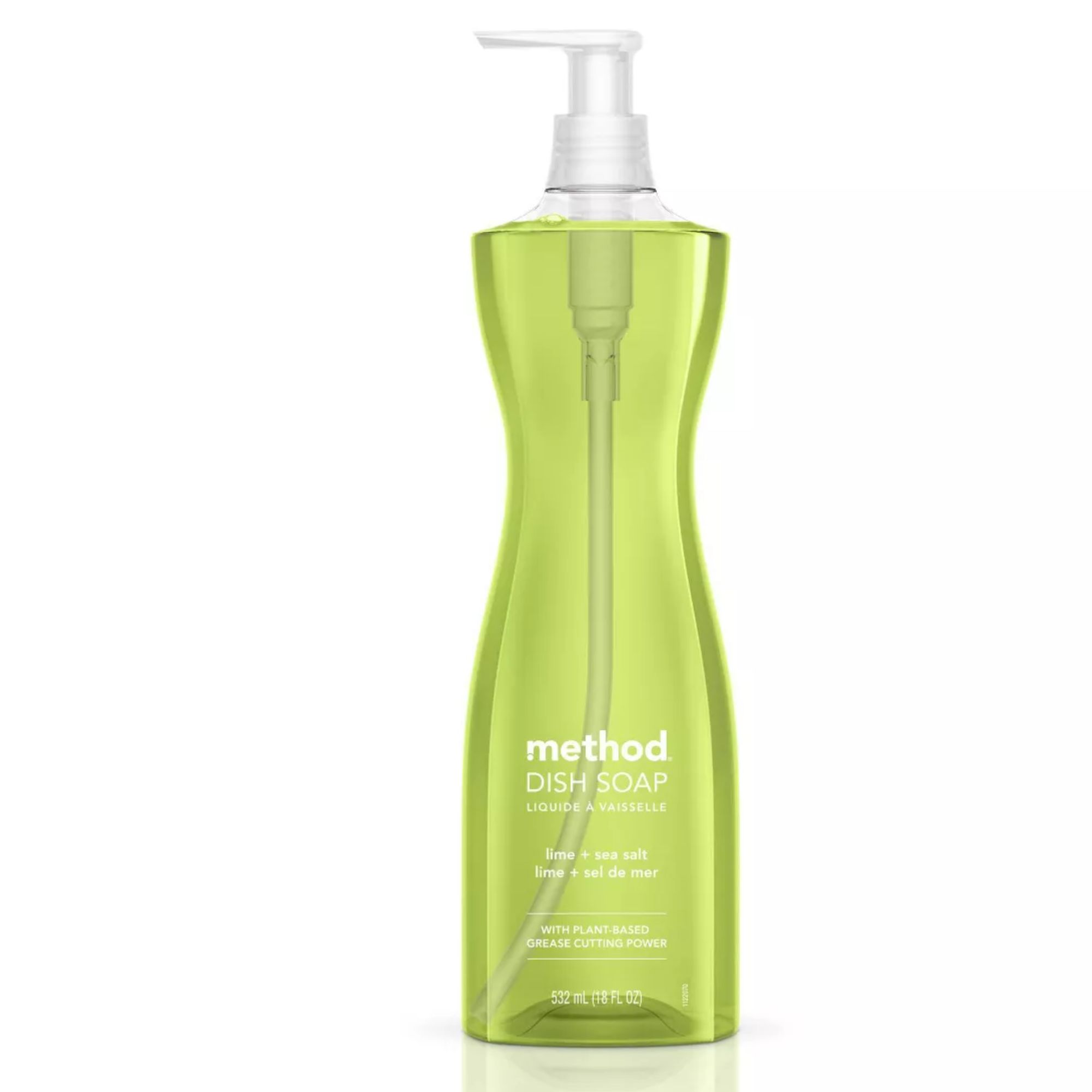
You don't need to go wild, investing in heavy-duty cleaning materials. A mild, eco-friendly solution, such as this one (or Ecover dish soap) will help lift stains and spills when water can't quite do the job alone. Don't use too much soap though: it will leave a residue.
How to descale your Nespresso with and without descaler
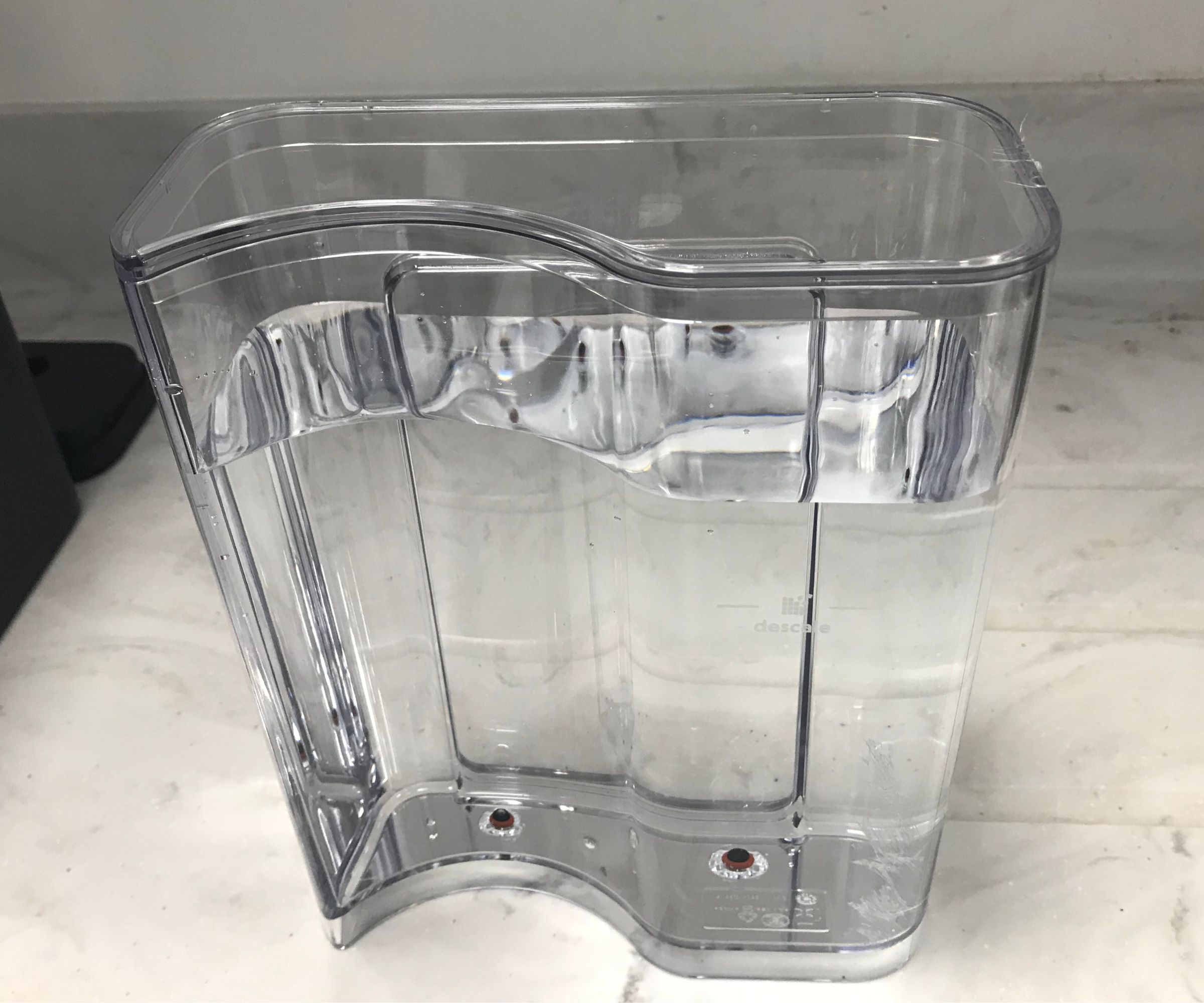
In an ideal world, experts would have you descaling your machine every month, especially if you live in a hard-water area. However, we know that this is a big demand, especially if you can't see the scale build-up or notice any significant slowing on your machine. So, we're happy to settle for every three months (or three hundred pods according to Nespresso's descaling guidelines on their website). Keeping count of your capsules is close to impossible so I set calendar reminders. When they pop up, I don't delay or hesitate, I just clean.
The descaling process itself is easy. If you have Nespresso's descaling solution, you can follow their simple instructions. Don't worry if you don't though. There are plenty of home remedies that will do the job just as well. Rocky Vuong, Founder of Calibre Cleaning, recommends using a 1:1 dilution of white wine vinegar and filtered water solution. Run two cycles with this solution and then run two without the solution to stop any residual taste from ending up in your cup. Some people find they need to run some extra cycles because vinegar can be quite persistently pungent.
Remember, the more often you descale, the better the health of your machine and — most importantly — the better the taste of your coffee.
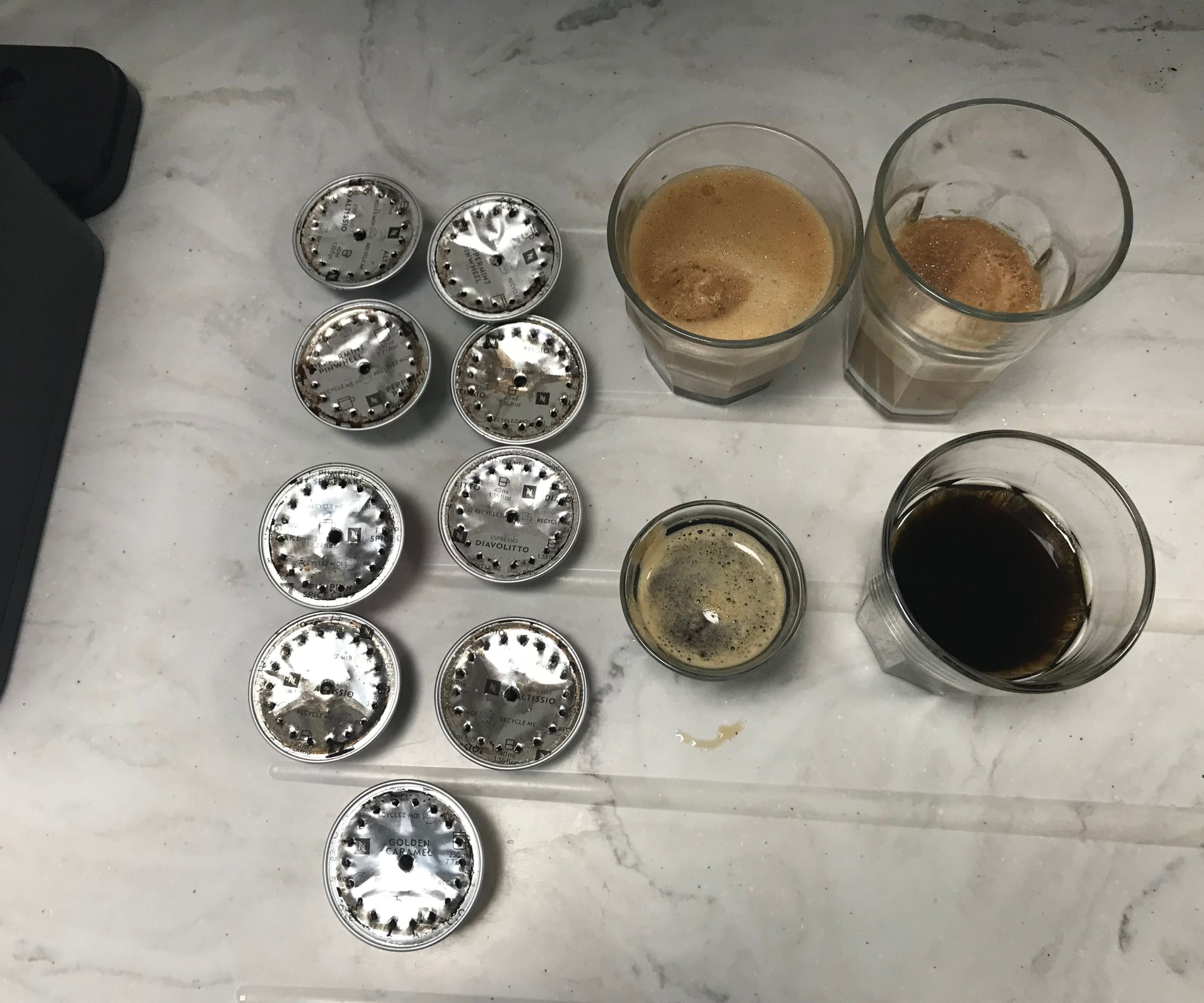
FAQs
How do I know if my coffee maker needs cleaning?
If you can tell that your Nespresso needs cleaning, you're already overdue a deep clean of your machine. It's recoverable, don't worry, but it's best to stick to a routine than wait for warning signs.
If your Nespresso machine is taking longer to brew, has a weak flow, and is making gurgling sounds, it's probably because you've got some mineral build-up or clogging. Nespresso machines will give you descale alerts, so don't ignore them. You might need a couple of descale rinses if it's become noticeably blocked, but this is something that you can rectify.
If your coffee changes taste, isn't quite at the right temperature or seems to be different from normal, this could be again because of scale build-up. Again, rinse, deep clean, and descale your machine.
Should I use filtered water in my Nespresso?
If you know you're not a committed cleaner, I would recommend switching out tap water for normal water. Some baristas swear that the minerals in unfiltered water enhance coffee flavors, others say that they make it inconsistent and unreliable. For the sake of reducing scale, use filtered water. You'll have to descale much less often.
Sign up to the Homes & Gardens newsletter
Design expertise in your inbox – from inspiring decorating ideas and beautiful celebrity homes to practical gardening advice and shopping round-ups.

Laura is our eCommerce editor. As a fully qualified barista, she's our expert in all things coffee and has tested over thirty of the best coffee makers on the market. She has also interviewed Q-Graders and world-leading experts in the coffee industry, so has an intimate knowledge of all things coffee. Before joining Homes & Gardens, she studied English at Oxford University. Whilst studying, she trained as a master perfumer and worked in the luxury fragrance industry for five years. Her collection of home fragrance is extensive and she's met and interviewed five of the world's finest perfumers (also known as 'noses'). As a result of this expansive fragrance knowledge, she always puts quality and style over quantity and fads. Laura looks for products which have been designed simply and with thoughtful finishes.
-
 How to clean a patio – 6 different methods, and when you must use a chemical cleaning agent
How to clean a patio – 6 different methods, and when you must use a chemical cleaning agentFrom manual scrubbing, natural solutions or calling in the pros, industry experts reveal the benefits and considerations of each method
By Andy van Terheyden Published
-
 Kris Jenner's favorite air fryer, the Ninja Crispi, is the perfect small kitchen solution – it deserves a place on the most compact of countertops
Kris Jenner's favorite air fryer, the Ninja Crispi, is the perfect small kitchen solution – it deserves a place on the most compact of countertopsKris approves of this compact yet powerful air fryer, and so do our own kitchen appliance experts, praising it for its multifunctionality
By Hannah Ziegler Published
